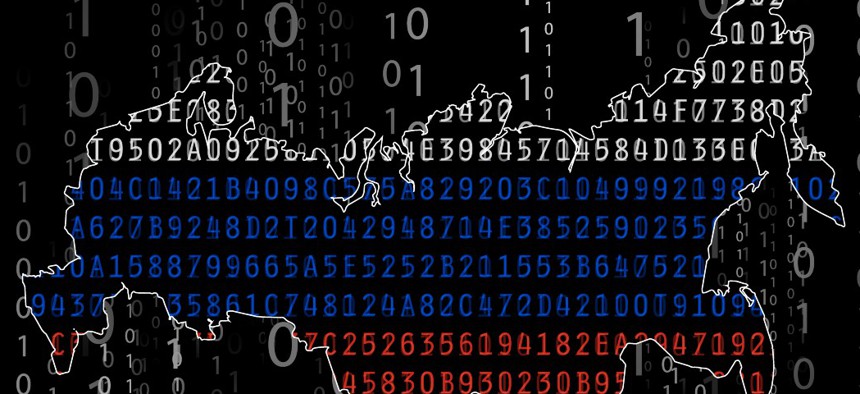Senators Ask DHS for Strategy to Protect U.S. Critical Infrastructure from Russia

traffic_analyzer/Getty Images
They also raised a series of questions about modern cyber and disinformation threats.
A bipartisan group of almost two dozen senators requested a briefing from top U.S. security officials regarding ongoing pursuits to shield America from Russian-linked cybersecurity and disinformation threats—specifically in the wake of what they called “Russia’s violent and unprovoked invasion of Ukraine.”
“As we stand with the Ukrainian people, impose crushing sanctions on Vladimir Putin’s regime and push for additional security assistance to help Ukraine defend itself, we also must work to secure the homeland from retaliatory cyber activities,” the 22 senators, led by Sens. Jacky Rosen, D-Nev., and Mike Rounds, R-S.D., wrote in a letter delivered on Sunday.
Their correspondence was addressed to Homeland Security Secretary Alejandro Mayorkas, and copied to Cybersecurity and Infrastructure Security Agency Director Jen Easterly, National Cyber Director John Inglis and Deputy National Security Advisor for Cyber and Emerging Technology Anne Neuberger.
A Senate press official told Nextgov on Monday that DHS acknowledged receipt of this letter, but stopped short of confirming whether a briefing was set.
Via the 4-page document, the lawmakers point to previous, known Russian attempts at cyber espionage and other malign digital campaigns against its competitors. Multiple Ukrainian entities have also endured cyberattacks amid this invasion, and U.S. agencies remain on alert. In light of the “evolving threat landscape,” the senators called for an official discussion on the government’s work to protect America’s critical infrastructure. During that engagement, they aim to address how DHS is confronting disinformation threats and whether the threat level on that front has changed since Russia invaded Ukraine. Among other topics, the lawmakers also want to know how CISA is monitoring Russian state-sponsored cyberattacks and if there are any indications that certain U.S. business sectors or infrastructure may be targeted.
Though they commended CISA for forming the Shields Up Technical Guidance Webpage to help organizations deal with cyber incidents potentially associated with this conflict, the senators additionally raised questions regarding how that guidance is being disseminated to entities with less resources.
“DHS responds to Congressional correspondence via official channels,” a spokesperson from the department told Nextgov on Monday.
That official added that last month President Joe Biden designated DHS as the lead federal agency to respond to Russia-related impacts to the United States. In that capacity, the department has since established a Unified Coordination Group, they noted, “to ensure unity of effort across the federal government.”






